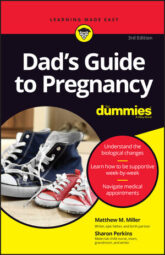The idea of having your baby at home may appeal to you and your partner. Home delivery may be an option for you if you meet all the following strongly suggested guidelines:
You've found a midwife who's willing to deliver at your home.
You live fairly close to a medical facility in case of emergencies.
You're not delivering in Montana in January or any other area where roads are impassable during the part of year you're due.
You're both calm, sensible people who are really committed to the idea of home birth.
The trouble with labor is that though 99 out of 100 times everything goes perfectly, you need to be prepared for that one time when things go bad so quickly you can't believe your eyes. Having nearby medical help is essential, unless your midwife can do a Cesarean in less than 30 minutes in an emergency.
Make sure your midwife has a backup plan to cover contingencies such as sudden illness or other problems that would prevent her from getting to you for the delivery. Does she have a partner or someone who covers for her? Discuss circumstances that may cause you to change your mind about home delivery, from ominous weather to last-minute cold feet.
If you plan to use a midwife at home, be sure to get good answers to the following questions:
What type of equipment will you bring with you? You can be sure a ventilator and fully equipped operating room won't appear out of her black bag, but oxygen and basic medications such as intravenous fluids and oxytocin (to prevent heavy bleeding after delivery), plus equipment like a bag-valve mask to breathe for the baby in case of problems after birth, should be in every midwife's bag.
How long do you stay? "As long as you need me" is a good answer. She should stay at least an hour or two to make sure your partner and the baby are behaving normally and to get nursing started.
On the other hand, you may not want her moving in with you — that's your mother-in-law's role. She should also visit for the next few days to recheck both mother and baby in case of any late-developing problems.

